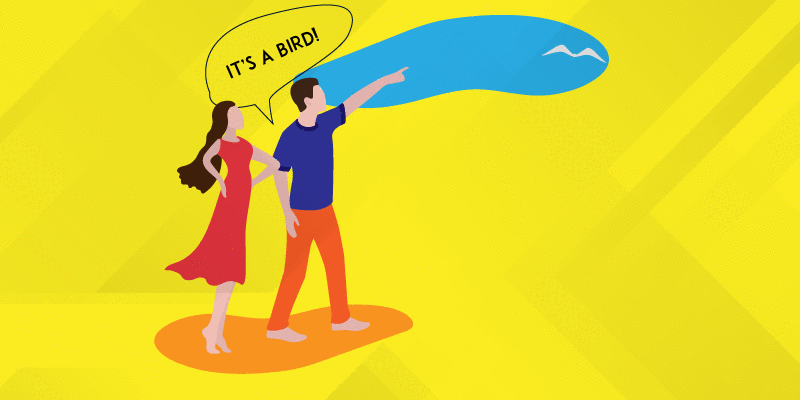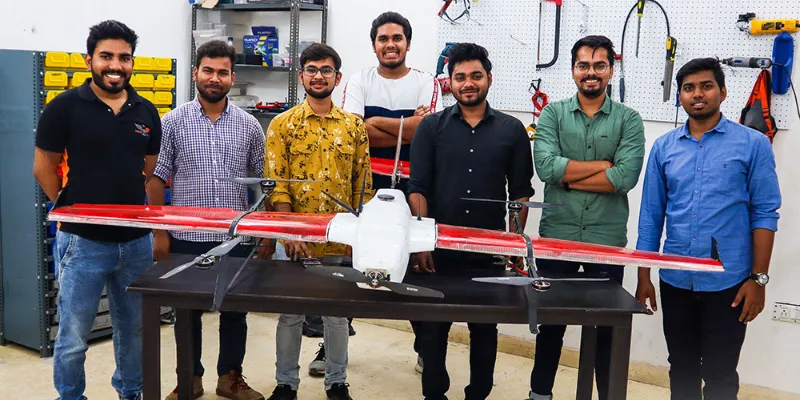Foodtech unicorn Zomato flies its first drone to test food deliveries
With a peak speed of 80 km per hour, and a maximum payload of five kg, Zomato's drone was able to cover a distance of five km in 10 minutes.
Foodtech unicorn Zomato has tested its drone delivery technology for the first time with a hybrid drone, fusing rotary, and fixed wings on a single drone.

The average time required for a Zomato biker to deliver food is 30.5 minutes, and they cannot possibly do well with long-distance deliveries. Considering the large-scale traffic congestion in a city like Bengaluru, sometimes it takes over 40 minutes to cross a single junction or a bridge. That is where Zomato is hoping that drone tech could change the game.

The Zomato team that conducted the drone test.
With the same intention, Zomato acquired Lucknow-based aerospace company TechEagle a few months ago. As per a notification by the Director General of Civil Aviation (DGCA) last month, interested organisations could submit an Expression of Interest (EOI) for conducting experimental Beyond Visual Line of Sight operations (BVLOS) of Remotely Piloted Aircraft Systems (RPAS)/Unmanned Aircraft Systems (UAS). Zomato is now forming a consortium in response to the guidelines of the DGCA.
Deepinder Goyal, Founder and CEO of Zomato said in a press statement,
“The only possible way to reduce the average 30.5 minutes to 15 minutes is to take the aerial route, as roads are not efficient for very fast delivery. We have been working towards building sustainable and safe delivery technology and with our first successful test, food delivery by drones is no longer just a pipe dream. While regulatory hurdles are not trivial, and the government’s concerns need to be looked at from various (valid) points of view, the tech is ready to fly and I am confident that drone delivery will be commonplace sooner rather than later.”
The final design of the drone is lightweight, and treats safety as a top priority. It has inbuilt sensors and an onboard computer to sense and avoid static and dynamic objects, overall making it more efficient for autonomous flights. They are also capable of taking off vertically like a helicopter, transiting to an airplane mode to cover the distance and then switching back to helicopter mode for vertical landing without requiring any airstrip.
The current arrangement is fully automated and the drone was tested with a remote pilot's supervision to ensure 100 percent safety. With time and more data, Zomato intends to go ahead with pilot supervision to deliver food with drones.









